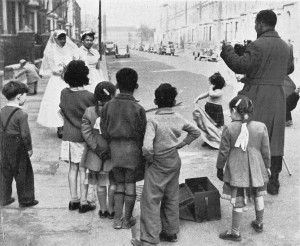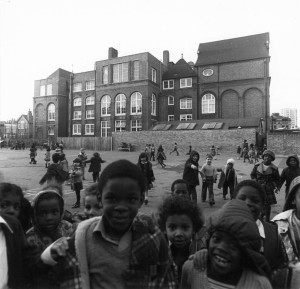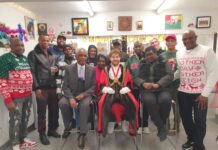Cultural researcher and London Blue Badge holder Kelly Foster will be leading this September’s guided walk, The Island of Brixton, as part of the Lambeth Heritage Festival. Arts co editor Ruth Waters met up with Kelly to find out a bit more about the walk and the research behind it.

Kelly has been researching the untold stories of the Windrush generation for her whole life. “My grandmother, Kelesta Blackwood, came to Brixton from Jamaica with her infant son in 1955 to join her husband. She didn’t come on the MV Empire Windrush, but on another ship the SS Auriga, and I’ve always been interested in all the different experiences of that first generation of West Indians to settle here in Brixton.”
In an intriguing instance of the historical, cultural and personal overlapping in her work, the title of the walk, The Island of Brixton, was inspired by Donald Hinds’s essay of the same name. Donald came to England on the Auriga, the same ship as Kelly’s grandmother, before working on the West Indian Gazette (a publication which has been one of the most useful documents for Kelly’s research) before becoming a published author and history teacher in Tulse Hill, for which he is widely and affectionately remembered within the local community.
As a Blue Badge Guide, Kelly is no stranger to leading guided tours of London’s famous heritage sites but, she explains to me, “it’s a real privilege to transfer this skill I have to tell people about an aspect of our heritage which is so interesting and complex but which is often omitted from the history books.”

Whether at the Lambeth Archives, Black Cultural Archives or British Library, Kelly has been trawling through documents, maps and minutes to uncover the life stories of the first African Caribbean members of the Brixton community – the struggles they faced as well as the successes they had – and has also carried out a lot of her research by talking to local people. “People still remember the people I’ve been researching… [for example] Oswald Denniston also know as Columbus of Brixton, a trader on Brixton Market for decades, only died in 2000”.
The stories Kelly has been uncovering are both about individuals – she tells me of one fascinating lady, Belzeta Helsey, who was an entrepreneur and hairdresser and whom she has been tracking during the ten years in which she went from having an unofficial business to it becoming a popular salon on Railton Road – and also larger associations and organisations within the African Caribbean community, from the Somerleyton – Geneva Advice Centre, Racial Brotherhood Association, to the West Indian Gazette. The Island of Brixton walk aims to give people a taste of the multiplicity of narratives, but will by no means cover them all – there’s just too many.

Although the period which the walk focuses on is 1948 to 1962, Kelly’s research is not just looking back to the past – the question of how Brixton is thought about today. “Brixton has come to be synonymous with black London, or black Britain, and I think it’s important to have a closer look at why it’s so important to the black community; to look into the factors which have made it such a social, cultural and political hub for the black community today, which is more complex than that the fact the Labour Exchange was on Coldharbour Lane.”
What does Kelly hope that people will leave her walk with? “Hopefully they’ll find out something new about familiar places, even if they’ve been a Brixton resident for years! But more than that, I want people to go away with a better understanding of how Brixton was for the Windrush generation and why it continues to be so important to the African Caribbean community today.”
The Island of Brixton walking tour will take place on Saturday 13th September at 11am. If you’d like to attend please register your attendance online at eventbrite.co.uk. If you would like to find out more about Kelly Foster visit kellyfoster.co.uk







[…] Kelly Foster, historian and London Blue Badge Guide, member of Support Lambeth Archives […]